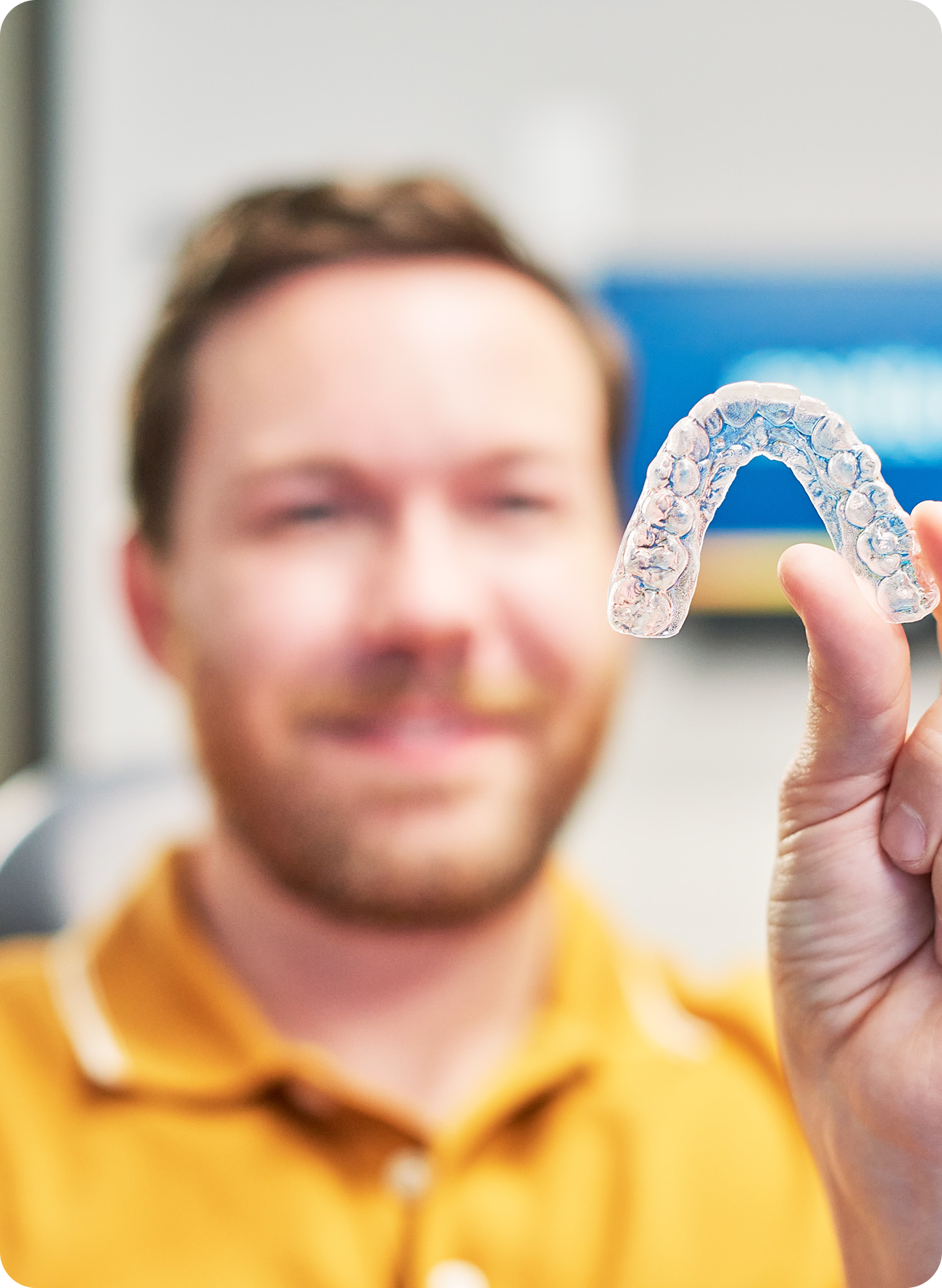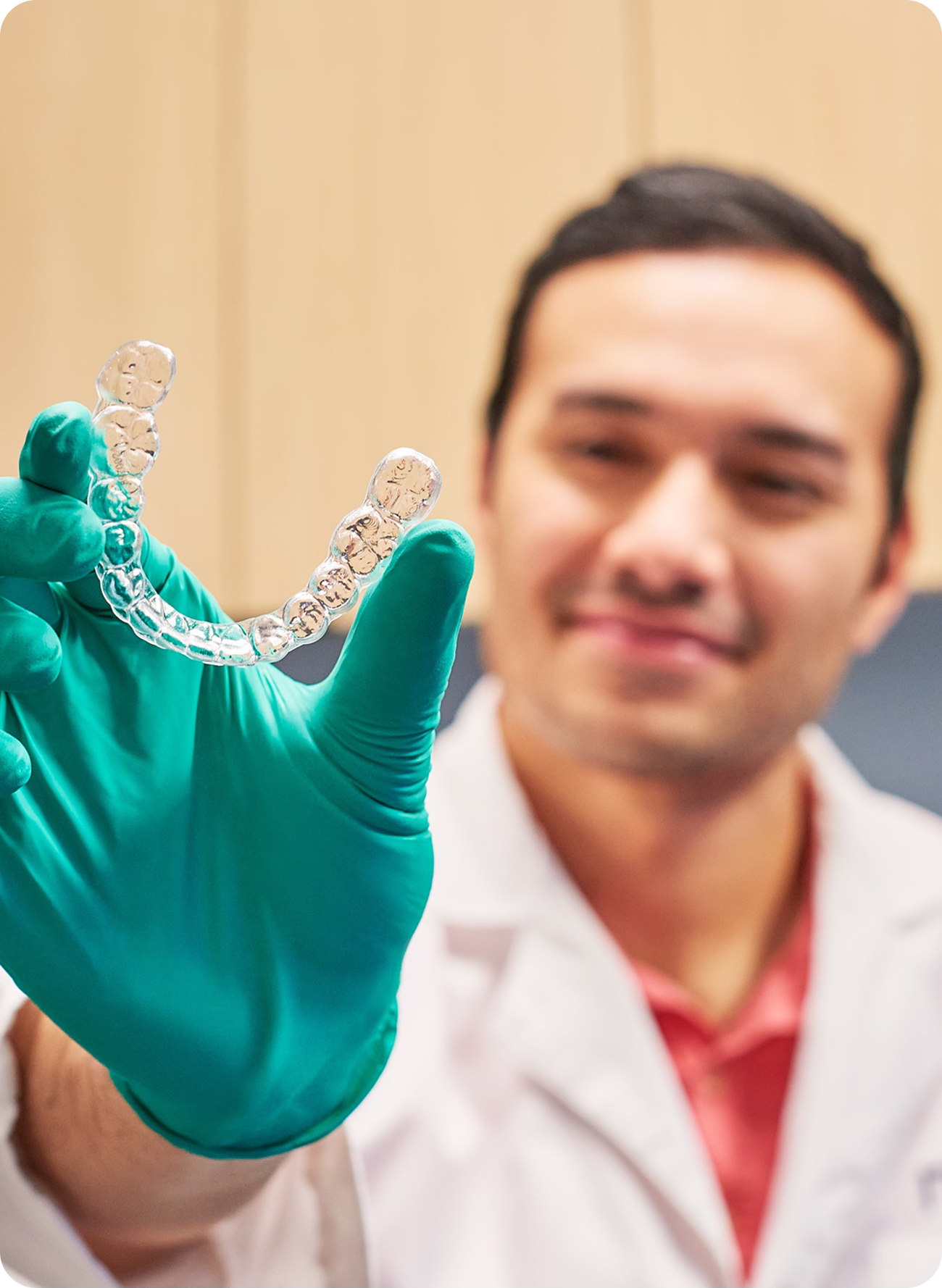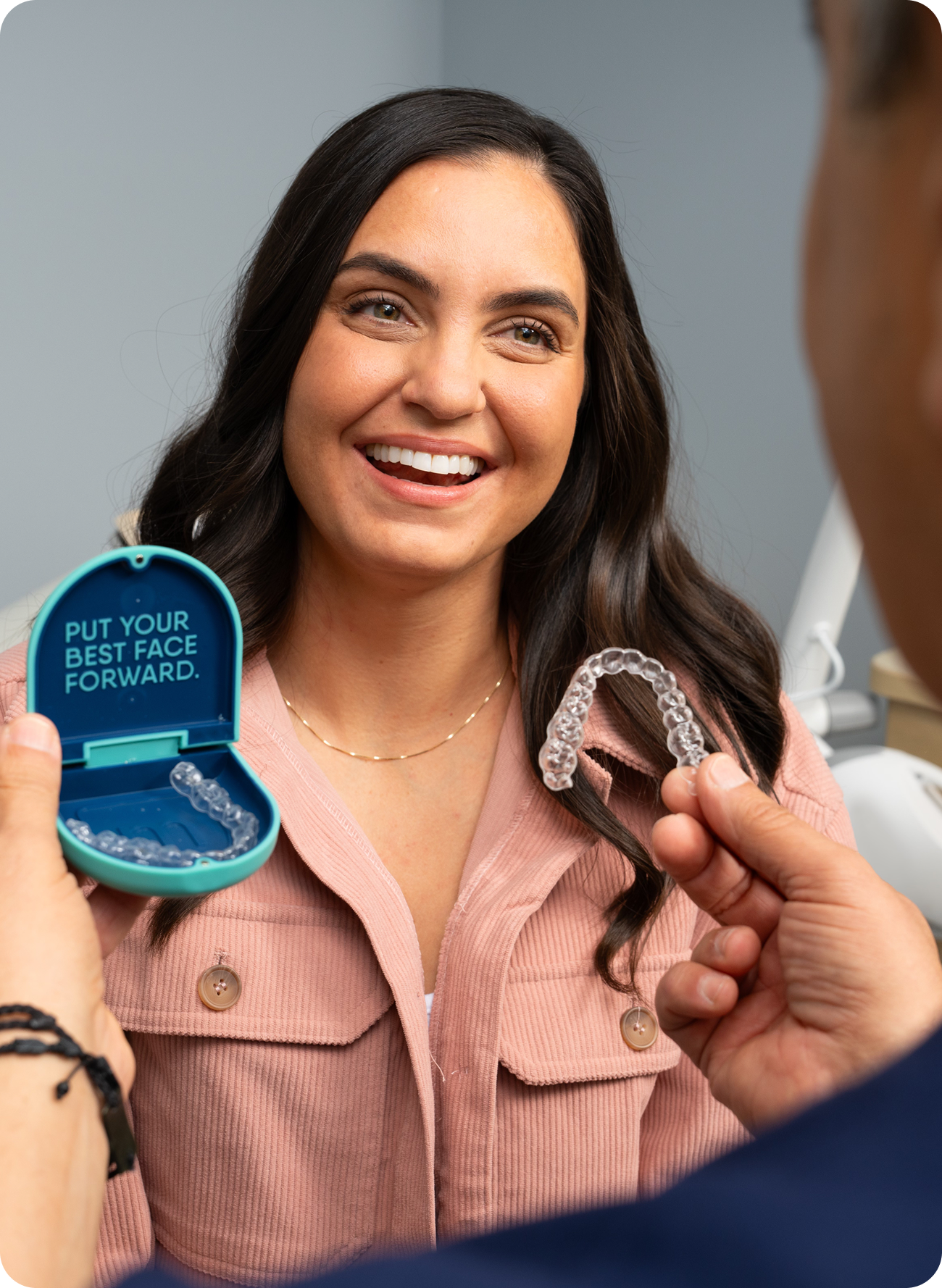Last updated 07.29.2024
Stay in the game: An oral health playbook for athletes
Explore the comprehensive oral health playbook for athletes using clear aligners on managing oral health during sports.
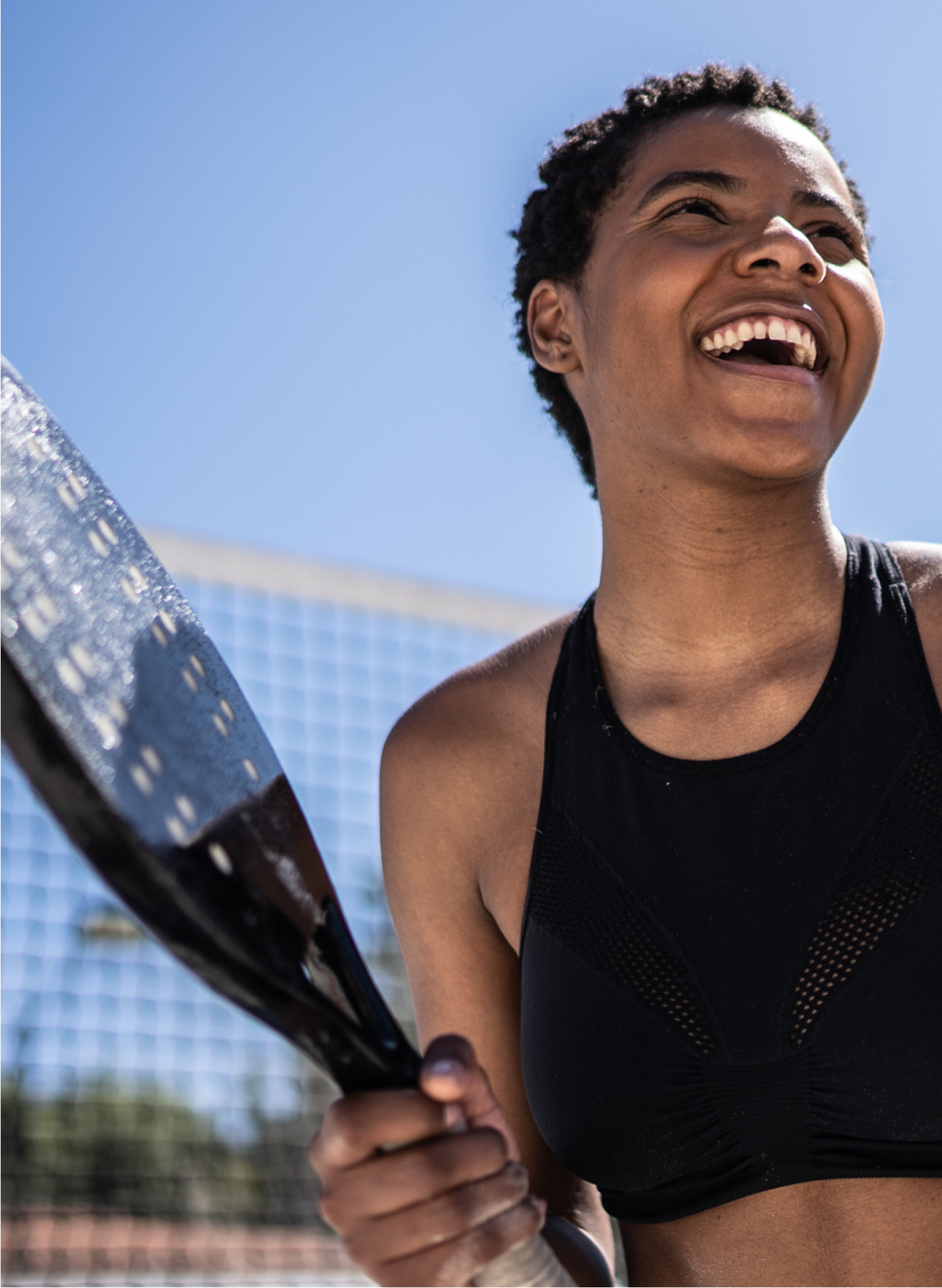
Playing sports and staying active is not only great for your body but also for your confidence. Maintaining your oral health no matter what sport you play is essential for your overall health. In this playbook, we’ll coach you on everything you need to know about protecting your teeth as an athlete.

Why oral health matters for athletes
Oral health affects your overall well-being, and this is especially important for athletes who need to be in top shape. Poor oral hygiene can lead to dental infections, tooth loss and even systemic issues that affect your physical performance. By taking care of your teeth, you’re not just preserving your smile—you’re also boosting your athletic performance. This is why athletes need to take special care of their teeth and oral health.
Impact on performance
Oral health problems can have a direct impact on your performance. For instance, a toothache can be distracting and painful, making it difficult to focus on the game. Gum disease has been linked to inflammation and other health issues that can affect your stamina and energy levels.
Psychological benefits
A healthy smile boosts your confidence, which can translate into better performance on the field. When you feel good about your appearance, you’re more likely to play with energy and enthusiasm.
Preventing long-term issues
Taking care of your teeth now can prevent long-term dental problems that could sideline you in the future. Regular dental check-ups and proper oral hygiene are essential for longevity in both your sports career and your overall health.
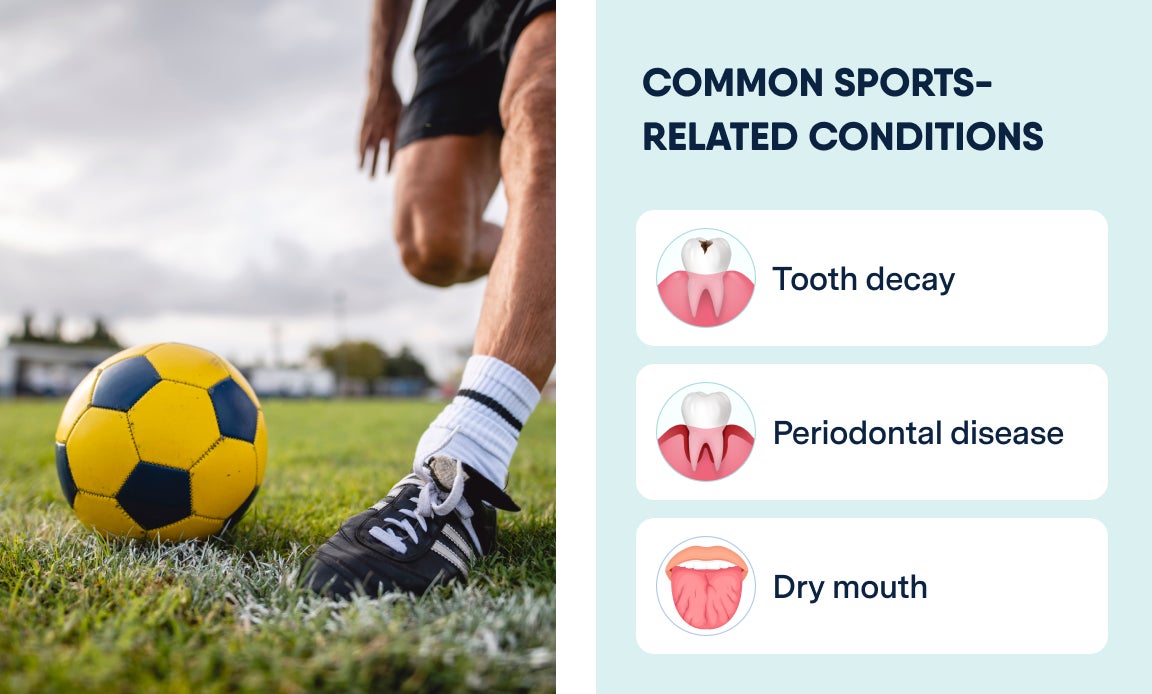
Common sports-related oral health conditions
Dental caries and tooth decay
Frequent consumption of sports drinks and energy bars, which are high in sugars and acids, contributes significantly to tooth decay and dental caries. These products promote the growth of cariogenic bacteria that produce acids, leading to demineralization of the tooth enamel. Studies have shown that up to 75% of elite athletes suffer from dental caries. Swimmers in particular have an increased risk in tooth erosion due to their prolonged exposure to chlorinated waters.
Periodontal disease
Poor oral hygiene, combined with the high intake of sugary and acidic foods and drinks, can lead to gum inflammation and periodontal disease. Stress and immune suppression associated with intense training also contribute to this condition.
Dry mouth (Xerostomia)
Intense physical activity often leads to dehydration and reduced salivary flow, which can cause dry mouth. This condition reduces the natural protective functions of saliva, increasing the risk of dental caries and erosion. Dry mouth can significantly affect oral health by reducing the mouth's ability to neutralize acids and remineralize teeth.
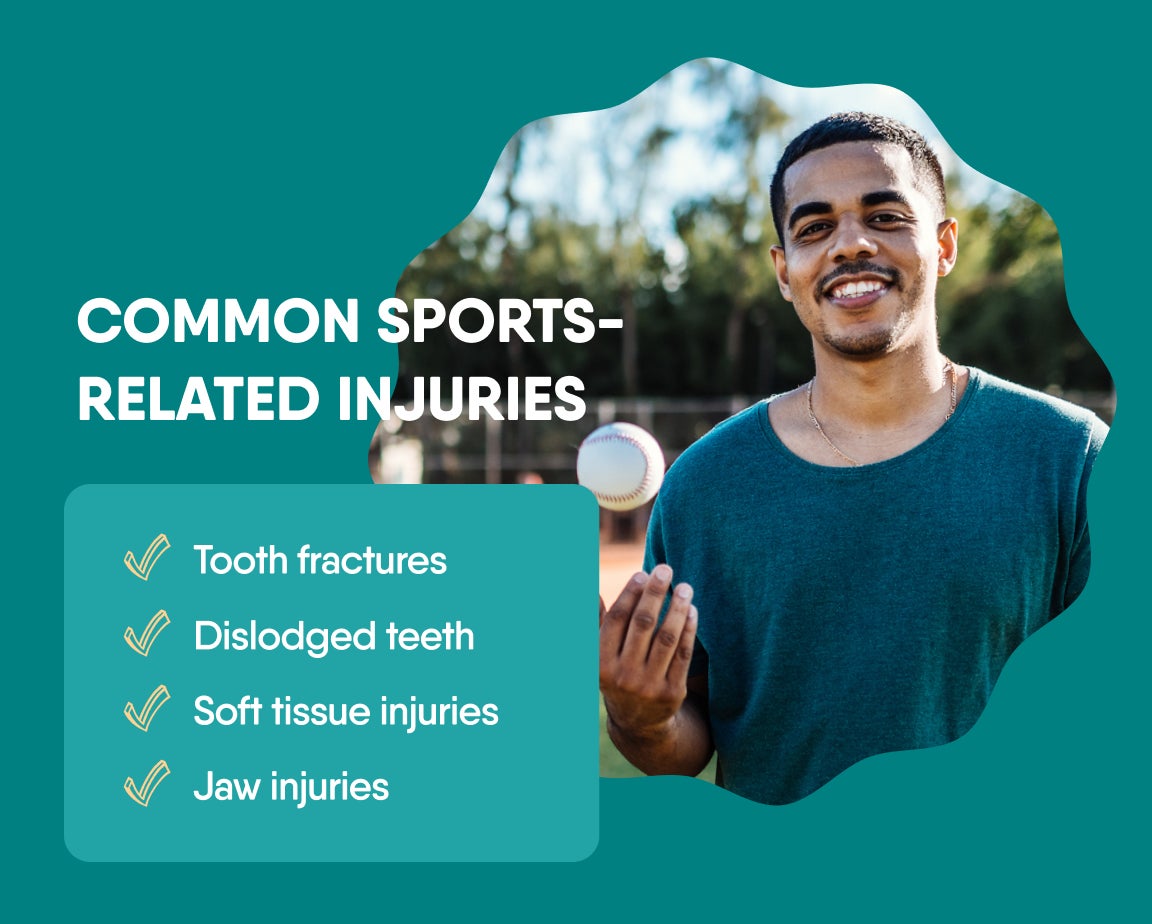
Common sports-related dental injuries
Understanding common dental injuries and dental trauma can help you take preventive measures. Typical sports-related dental injuries can include:
Tooth fractures
Dislodged teeth
Soft tissue injuries
Jaw injuries
Orthodontic-related injuries
If you experience any of these injuries, seek immediate dental care. Quick action can often save a tooth and prevent further complications. Contact Aspen Dental for emergency dental care services.
How to handle dental emergencies
Knowing how to respond to dental emergencies can make a significant difference in the outcome. Here’s what to do in case of common dental emergencies:
Tooth fracture
Rinse your mouth with warm water and apply a cold compress to reduce swelling. Save any broken pieces and see your dentist as soon as possible.
Dislodged tooth
Keep the tooth moist by placing it back in its socket or in milk. Avoid touching the root and visit your dentist immediately.
Soft tissue injury
Clean the area gently with water and apply pressure to stop bleeding. Seek medical attention if the bleeding doesn’t stop or the injury is severe.
Jaw injury
Immediately apply a cold compress to reduce swelling and minimize pain. Keep the jaw still and avoid talking or chewing if possible. Seek medical attention immediately, especially if there's difficulty moving the jaw or are experiencing jaw pain.
Orthodontic-related injuries
Identify the specific issue, whether it's a broken bracket, a loose wire or something else. For immediate relief, use orthodontic wax to cover any sharp edges and avoid further injury to the mouth's soft tissues. Rinse with saltwater to reduce the risk of infection and alleviate pain. Most importantly, contact your orthodontist as soon as possible to schedule a repair appointment.
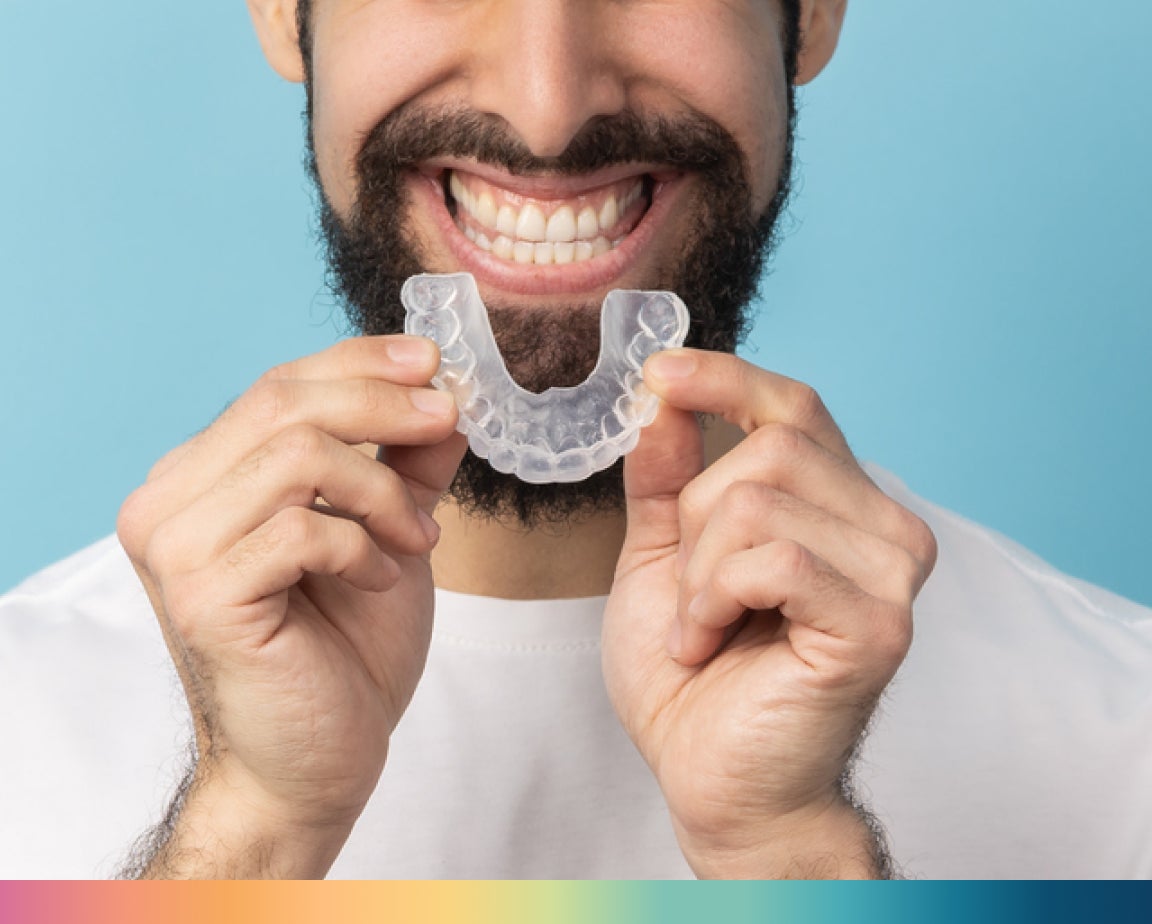
How to take preventive measures to protect your teeth
Prevention and protection is key in helping reduce mouth and dental injuries while you play sports. Here are ways you can prevent dental injuries and protect your oral health:
1. Proper nutrition
Proper nutrition is essential for optimal sports performance. It involves consuming a balanced diet that includes a variety of nutrients, vitamins and minerals to support bodily functions and promote robust dental health.
2. Tongue position
Keeping your tongue in the correct position, pressed lightly against the roof of your mouth, can help protect it from injury during sports activities. This position can also aid in stabilizing the head and neck, potentially reducing the risk of concussions.
3. Hydration
Athletes should stay well-hydrated with water instead of sugary sports drinks to maintain salivary flow and reduce the risk of dental caries and erosion.
4. Mouth guards
Custom-made mouth guards are essential for preventing dental injuries in contact sports. They help absorb and distribute the force of impacts, reducing the risk of fractures and dislocations.
5. Oral hygiene
Regular brushing, flossing and dental check-ups are crucial. Athletes should be educated about the importance of maintaining good oral hygiene practices.
These habits and precautions are great ways in protecting your oral health and increasing your performance as an athlete. We’ll explore these points more in-depth. Read on to learn more.
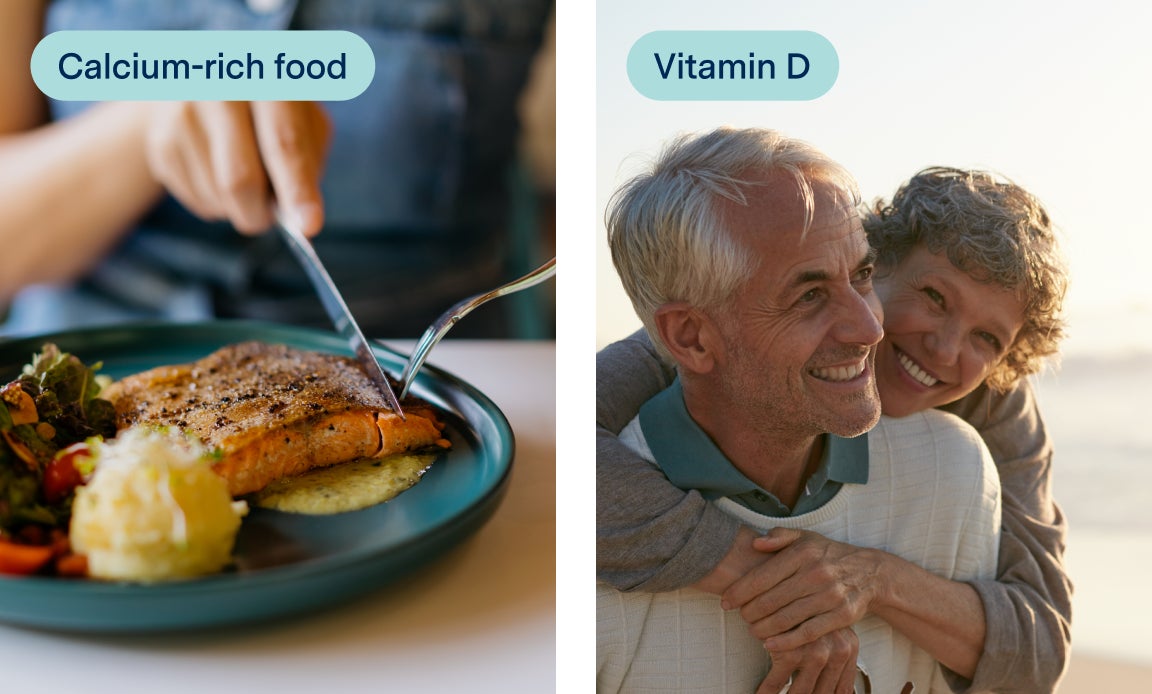
The role of nutrition in oral health for athletes
A balanced diet is essential for maintaining strong teeth and overall oral health. Athletes should particularly focus on:
Calcium-rich foods
Dairy products, leafy greens, and fortified foods help strengthen teeth. Incorporate these into your diet for optimal oral health.
Vitamin D
Essential for calcium absorption, Vitamin D can be found in fish, egg yolks and sunlight. Ensure you’re getting enough to support your teeth.
Maintaining a nutritious diet supports your athletic performance, prevents dental issues and keeps your teeth healthy and strong.
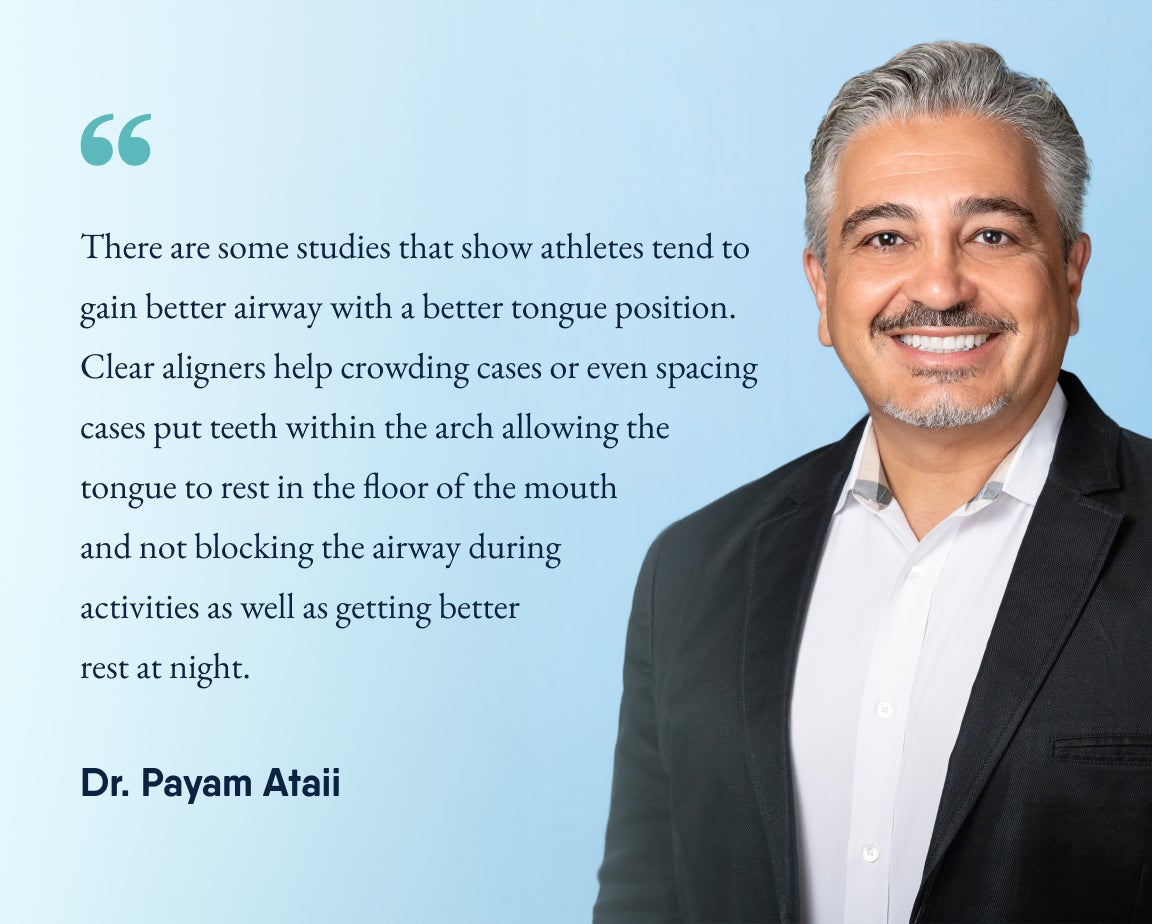
Why tongue position matters
The positioning of your tongue can affect not just your oral health, but overall physical health as well, especially during sports. By keeping the tongue lightly pressed against the roof of your mouth, you not only safeguard it from injuries but also contribute to the stability of your head and neck. This can be instrumental in minimizing the likelihood of sustaining concussions.
Recent research further highlights, as Dr. Ataii, our Motto® aligners expert points out, the benefits of proper tongue placement for athletes. It's found that an optimal position of the tongue, facilitated by well-aligned teeth, enhances airway openness. This is particularly beneficial during physical activities, promoting better breathing and performance.
In essence, maintaining the right tongue position is more than just a good dental health practice—it's a step towards better athletic performance and overall health.
The importance of hydration for your oral health
Drink plenty of water to keep your mouth moist and wash away food particles and bacteria. Limit intake of sugary sports drinks as they can cause tooth decay. Staying hydrated is critical for both your performance and oral health.

Alternatives to sports drinks
To maintain optimal dental and physical health, consider choosing beverages with minimal or no sugar content over traditional sugary sports drinks. Here are some excellent alternatives that can keep you hydrated and in peak condition without compromising your dental health:
Coconut water
A natural, refreshing option that provides electrolytes and hydration with a fraction of the sugar found in sports drinks.
Water with sea salt
Adding a pinch of sea salt to your water can replenish electrolytes lost during physical activity, without the need for sugary additives.
Sugar-free electrolyte powder
These powders can be mixed with water to create a hydrating drink that supports your electrolyte balance, without the sugar spike.
Low-sugar sports drinks
Some sports drinks on the market offer low-sugar versions, providing the hydration you need with fewer calories and less sugar.
Good ol’ H2O
Nothing beats pure water for hydration. It's the healthiest option for keeping your body hydrated and functioning at its best.
By choosing any of these alternatives, you can stay hydrated and energized during your workouts and while playing, keeping your teeth and body in excellent condition.
How to choose the right mouth guard as an athlete
Mouth guards are a critical piece of protective gear for anyone participating in contact sports. They work by absorbing and evenly distributing the force from impacts, significantly reducing the risk of serious injuries such as fractures and dislocations. While clear aligner wearers can use standard mouth guards, those with braces may need custom options.
For non-orthodontic athletes as well, find a custom-made to fit mouth guard that contours to your mouth. By fitting snugly over the teeth and gums, custom mouth guards provide a level of protection far superior to off-the-shelf options, making them an essential investment for athletes looking to safeguard their oral health.
Tips for athletes who wear Motto® clear aligners
If you wear Motto® aligners, you need to be aware of the extra precautions that come along with wearing them as an athlete. Some sports are safe enough to keep your aligners in while you play, while others pose a risk to injury and damage to both your clear aligners and your mouth. We’ll break it down below.
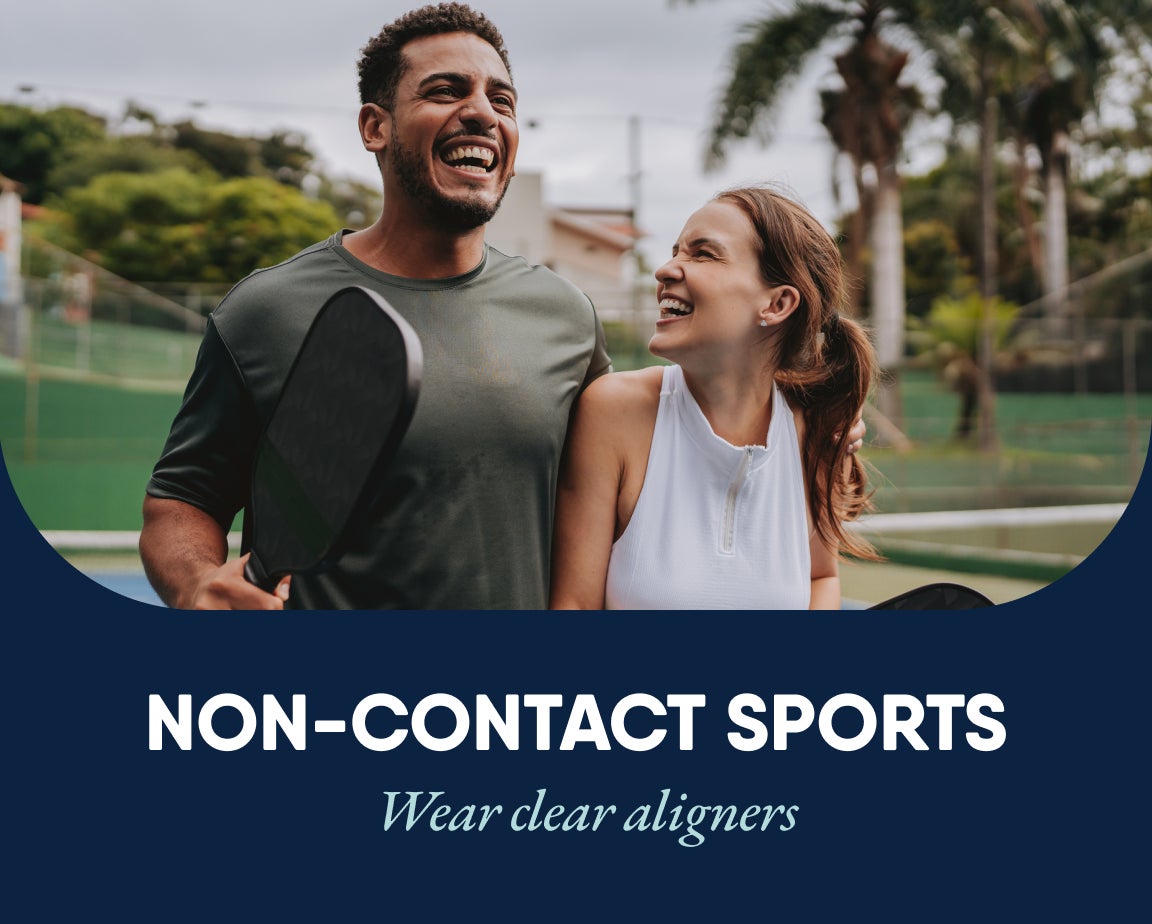
When it’s okay to put your clear aligners in the game
For non-contact sports, you can usually wear your clear aligners without any issues. These sports include:
Baseball/Softball
Basketball
Cycling
Dodgeball
Kickball
Pickleball
Running
Recreational soccer
Tennis
Ultimate frisbee
Volleyball
Wearing your Motto® aligners during these activities won’t interfere with your performance and poses minimal risk. Just remember to clean them regularly to prevent bacteria buildup.
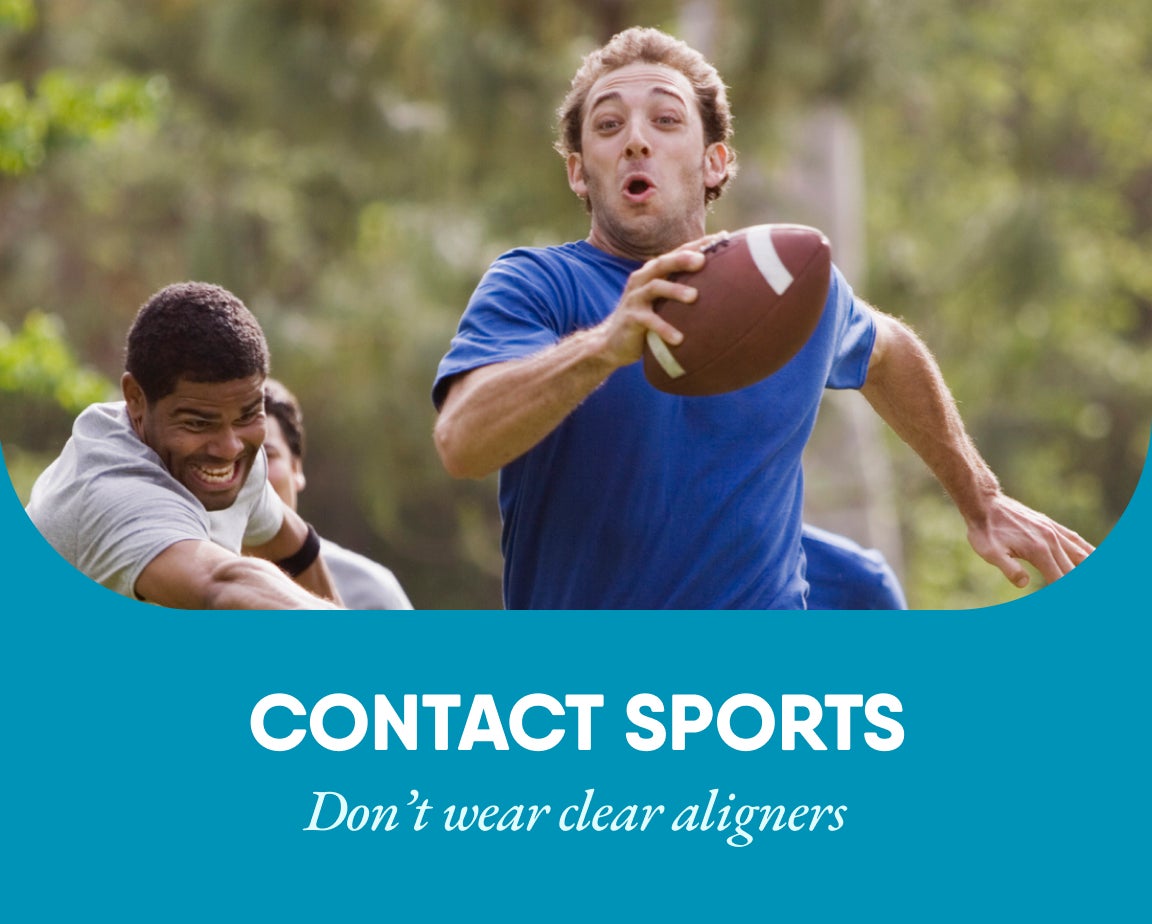
When you should bench your clear aligners
For contact sports or activities that pose a risk of impact to your mouth, it’s best to remove your clear aligners and store them in their case to keep them clean and safe. Sports that fall into this category include:
Boxing
Football
Hockey
Lacrosse
Martial arts
Rugby
High school, collegiate and professional soccer
Wrestling
Swimming
Diving
Swimming and diving can expose your Motto® aligners to harsh chemicals and bacteria, which can warp them or lead to oral health problems. Prolonged exposure to chlorinated water, particularly in improperly balanced pools or frequent swimmers, can lead to dental discoloration and enamel erosion. Always remove them before hitting the water.
Other contact sports run the risk of damaging your aligners or injuring your mouth if you play with them in. Always prioritize your safety by wearing a mouth guard instead.
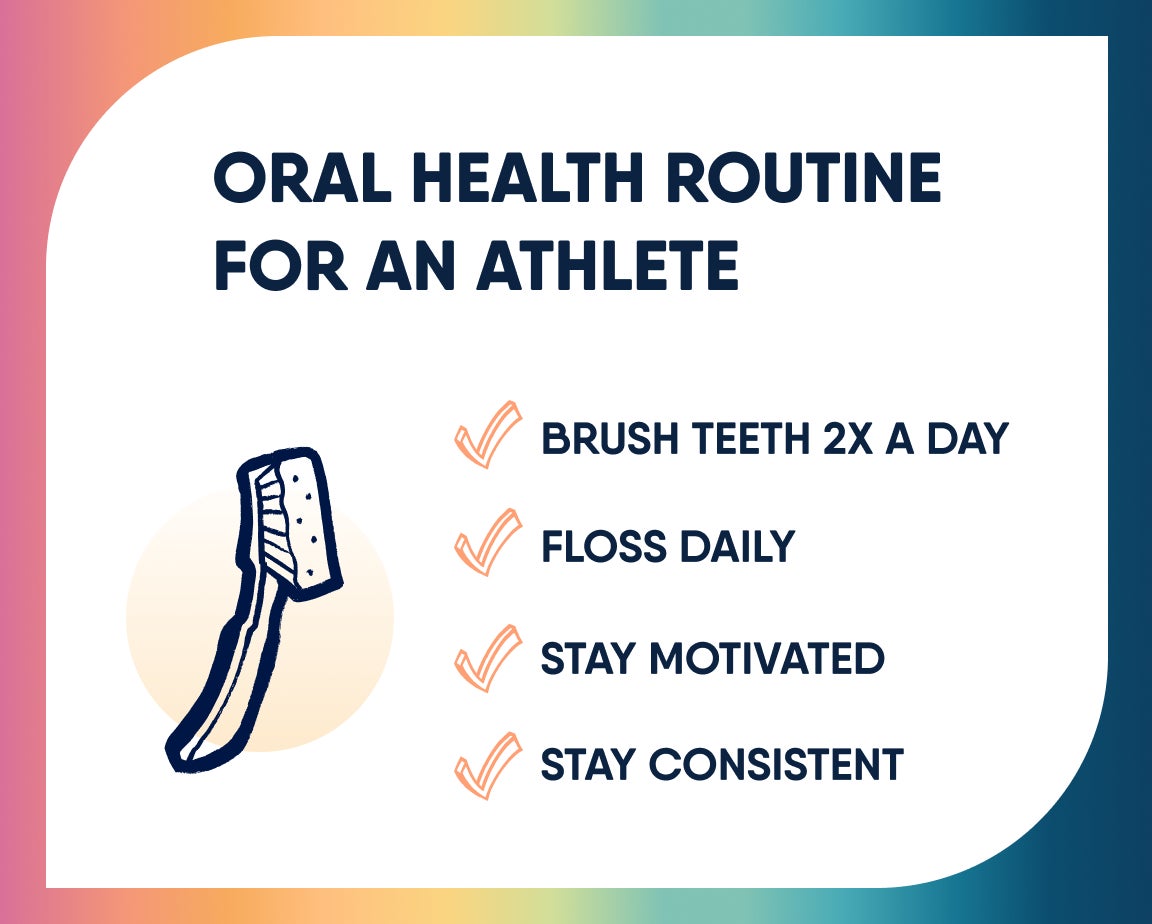
Building a routine for strong oral health as an athlete
Creating and sticking to an oral health routine is vital for athletes. Follow these steps for optimal oral health:
Brush teeth 2x a day
Brush your teeth at least twice a day using fluoride toothpaste. This helps prevent plaque buildup and keeps your smile bright.
Floss daily
Floss between your teeth to remove plaque and food particles. Regular flossing is essential for gum health and preventing tooth decay.
Stay motivated and consistent
Staying consistent with your oral health routine can be challenging, especially for busy athletes. Here are some tips to keep you motivated:
Set reminders
Use alarms or apps to remind you to clean your teeth and aligners. Consistent reminders can help you stick to your routine.
Track progress
Keep a journal to track your oral health habits and improvements. Seeing your progress can motivate you to stay consistent.
Reward yourself
Celebrate milestones with small rewards to stay motivated. Recognizing your efforts helps maintain a positive attitude toward your routine.

Your home team is in your corner
At Aspen Dental, we’re dedicated to helping you achieve a perfect smile while staying active. Our team is here to guide you through every step of your oral health journey. Whether you need advice on protecting your teeth during sports, help with your aligners, or a dental emergency, we’re just a call or visit away. Keep smiling, stay active and enjoy the journey to a healthier, more confident you!
Book now >

